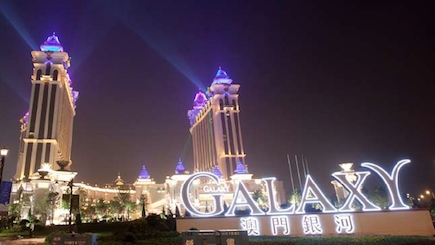This article first appeared in the Jan/Feb 2012 issue of World Gaming magazine.
Let’s have a chat about Macau. Where is it headed? What is its future? Let’s make some predictions about where Macau might be in 2020. It’ll be fun! And feel free to pull this article out come Chinese New Year 2021 and see how close we were. Maybe we will look like geniuses (I can’t bring myself to say genii), maybe we will look like fools. Maybe we will do an article in the Jan/Feb 2021 issue of World Gaming comparing our predictions to what actually happened!
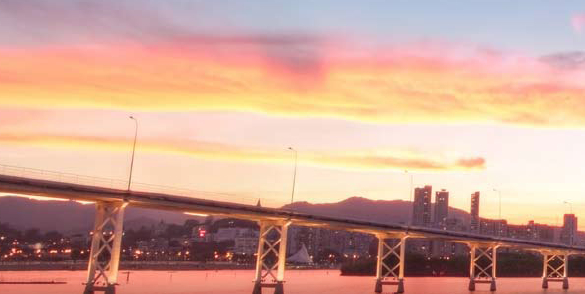
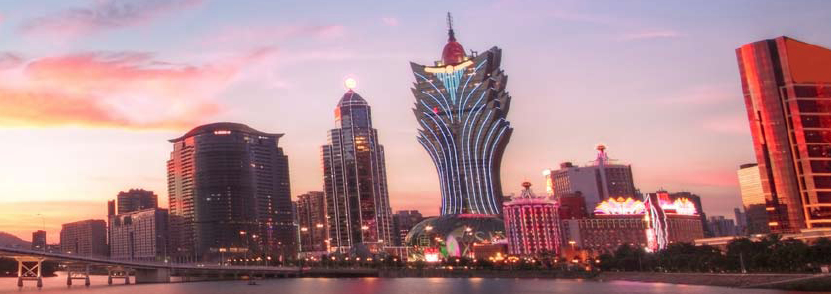
In order to predict the future, one must understand the past and the present. What is Macau? How does it work? How did Macau become, well, Macau? Let’s find out.
Ancient history – pre Dr Ho
Many people don’t know there was a thriving gaming market in Macau long before the arrival of Dr Stanley Ho on the scene.
According to the DICJ (Macau’s gaming regulator), gaming was alive and well in Macau as far back as the 16th century, and it was the Chinese that were driving it back then too. The Portuguese Macau government regulated gaming in 1847, and fantan was the main game back then. Gaming boomed. The first monopoly concession was awarded in 1930 to Hou Heng company headed by Fok Chi Ting, and the second in 1937 to Tai Heng company headed by Fu Tak Iong and Kou Ho Neng.
Dr Stanley Ho
One cannot talk about Macau without talking of Stanley Ho. Indeed for many, Dr Ho is Macau. In years gone by it was often said about a quarter of the entire work force of Macau was employed either directly or indirectly by Dr Ho.
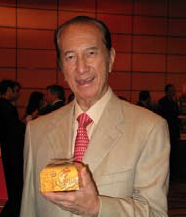 Some 24 years after it was awarded, Tai Heng’s monopoly concession expired, on 31 December 1961. An upstart young company called STDM managed to win the public bidding process and wrestle the licence away from Tai Heng. The company was set up by four men: Yip Hon, Teddy Yip, Henry Fok, and a handsome and relatively young businessman who had just turned 40: Stanley Ho. STDM won a 40 year monopoly concession and the rest, as they say, was history.
Some 24 years after it was awarded, Tai Heng’s monopoly concession expired, on 31 December 1961. An upstart young company called STDM managed to win the public bidding process and wrestle the licence away from Tai Heng. The company was set up by four men: Yip Hon, Teddy Yip, Henry Fok, and a handsome and relatively young businessman who had just turned 40: Stanley Ho. STDM won a 40 year monopoly concession and the rest, as they say, was history.
Stanley Ho emerged as the kingpin of STDM, but he was eventually to suffer the fate that he inflicted on Tai Heng company some 40 years earlier. Ironically, losing the monopoly would turn out to be the best thing that ever happened to STDM and Stanley Ho.
The liberalization
18 May 2004 is a day forever etched in the history of Macau. It was the day the Sands Macau opened, the first day for some 42 years that a non-Stanley Ho casino was operating in Macau. It was quickly followed by the Galaxy casinos (Waldo, Rio, President, Grand Waldo, StarWorld and Galaxy Macau), Sands’ two sister casinos the Venetian and the Plaza, Wynn, MGM and the three Melco Crown casinos (Crown which became Altira, Taipa Square and City of Dreams). Of course the 20 or so Stanley Ho casinos continued to operate (and a few more opened), now through the STDM subsidiary company SJM.
The liberalization, coupled with the inexorable economic growth of mainland China, caused Macau gaming to boom in a way no one could possibly have imagined.
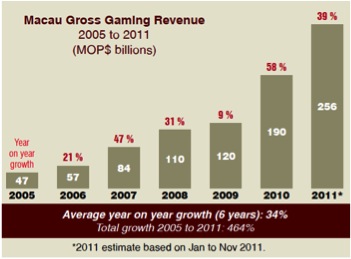
So much for the past. What about the present? Where are we at right now?
Macau in 2012
Undoubtedly, the mainland Chinese visitor drives the Macau gaming market. It is true that around a third of visitors to Macau are from Hong Kong, but they tend not to be the big players. Almost 60 percent of the visitors to Macau are from mainland China, and those players make up the grand majority, probably more than 90 percent, of the action on our gaming tables. The average stay in Macau is a mere 1.5 days. About half the people that come to Macau don’t even stay overnight. Given the border gate with China is closed from midnight to 7am, many players are on a mission – get to a casino fast, play hard, and get out.
Let’s do some math. With around 80,000 people coming to Macau every day, staying on average 1.5 days each, there are an average of 120,000 visitors in Macau at any given moment – even more on weekends. But there are only around 24,000 hotel rooms in Macau (we know, because we place a copy of WGM in many of them). Ok, I hear you say, some must stay at saunas! But again, there are “only” 28 saunas in Macau (again we know, WGM is available in all 28 of them), so only a few thousand could be crashing overnight at a sauna. Maybe another 1,000 or so at family spas. So where are all these 120,000 people? Many are just day-trippers, some are sharing rooms, but the honest truth is that many of them are playing in casinos through the night. While do-gooders may see this as a bad thing, we don’t. It’s just symptomatic of the passion of the Chinese player. Playing in a casino isn’t just a pastime, it’s a war of attrition! A challenge! A business. Serious stuff…
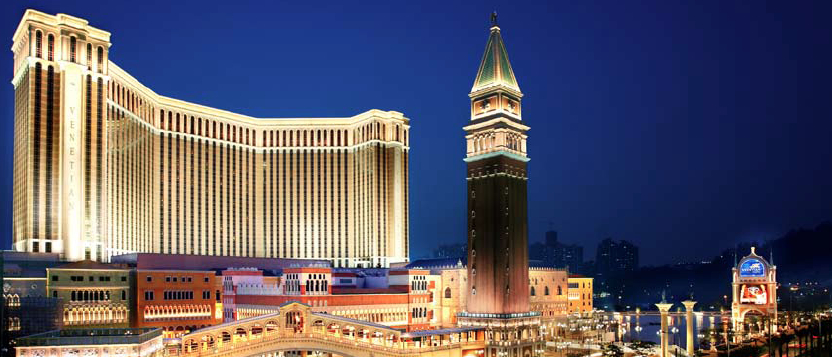
This frenetic pace of play gives casinos on the Macau peninsula an edge over their Cotai cousins. The extra 40 minute round trip from Macau to Cotai is a waste of good gambling time to many Chinese day-trippers.
Of course, baccarat is king. Over 90 percent of the play is baccarat. The rest is just pretty window-dressing. Sure, we here at WGM love poker, and electronic gaming is an enormous booming market segment which will continue to grow at an incredible rate. But the simple fact is that right now in 2012 your average Mr Chinese player is here for one thing and one thing only: băi jiā lè! (for the uninitiated, that’s “baccarat” in Mandarin). VIP play crushes the mass gaming floor by more than 2 to 1.
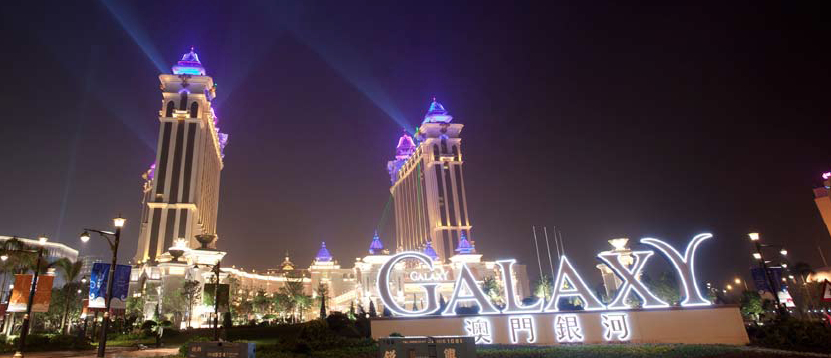
Junkets control everything, and rightly so. They are the lifeblood of this boom. Without them Macau would be nothing. They are travel agents, concierges, credit providers, hosts, marketing executives, banks, customer relations officers and in many cases pseudo-casinos themselves. The junkets have copped a lot of bad press in the past, much of it unfair. The days when the line between “junket men” and, shall we say, “unsavoury characters”, was thin (or even non-existent) are long gone. Junkets are now legitimate businesses, many listed on the Hong Kong stock exchange. It annoys me when I see the main-stream business press put scare quotes around the word “junket”, or feel compelled to prefix the word with “so-called”. Just because they don’t understand how junkets work is no reason to call junket operations “shady” or “mysterious”! The role of junkets in this dance called Macau is crucial. No junkets, no Macau.
What has all this boom done for Macau locals? Well, a lot. Macau has a very low tax rate and with every Macau citizen receiving an annual MOP$6,000 cash social dividend from the government for the last few years some people are paying basically no tax whatsoever. The country enjoys just 2.4 percent unemployment (which of course is no unemployment at all). In fact, the plaintive refrain from employers is that if you’re a Macau local, and you have a heartbeat, we’ll hire you! There has been a wages explosion in Macau – kids are earning ten times what their parents made at the same age. The GDP per capita of Macau citizens now exceeds that of their Hong Kong counterparts – something that would have been inconceivable just five years ago. What a great source of pride for the citizens of Macau!
In short, Macau is doing very, very well for herself.
Macau in 2020
It’s crystal ball-gazing time. Deng Xiaoping, who led China from 1978 to 1992, once famously said “胆子要大一点”, which roughly translates to “be bold!” Just as the Chinese people have heeded Deng’s advice, so will I. Here goes.
Some people think Macau has boomed so much, and so hugely, that it has to crash at some point. Or at least stop growing. You can’t sustain 35 percent growth every year, right?
Our response: “You ain’t seen nothing yet!”
Macau will continue to grow, and grow fast. There are a number of reasons why. Yes, there are some issues. Yes, there are some threats. But the strengths, opportunities and fundamental drivers of growth are very sound. The number one fundamental driver is China, a giant that has threatened to wake from her slumber for decades now. Make no bones about it, this giant has now woken up, and is currently stretching her muscles. It’s not even breakfast time yet. She hasn’t even got up and had her cup of tea yet. She has a long, long day ahead of her.
Superpowers tend to last around a century. The 18th century was Spain’s. The 19th century saw the British Empire dominate the world. The 20th century undoubtedly belonged to the Americans. So who will be the global superpower through most of the 21st century?
It will be China. It is the world’s most populous country, the Chinese people greatly value education, are prepared to work hard and have a burning entrepreneurial spirit. Growth is amongst the highest in the world – a steady 10 percent year on year on year. Millionaires are being made overnight. Standards are improving fast, luxury goods are appearing in the fashionable areas of the big cities. Hundreds of billions are being spent on infrastructure. Children are studying hard. It’s an age of aspiration, an age of opportunity. Wages are up. China is the world’s creditor, with countless billions in foreign exchange reserves and savings. There are more people learning English in China than exist in all of England! There will be lots of new rich wanting to come to Macau to play.
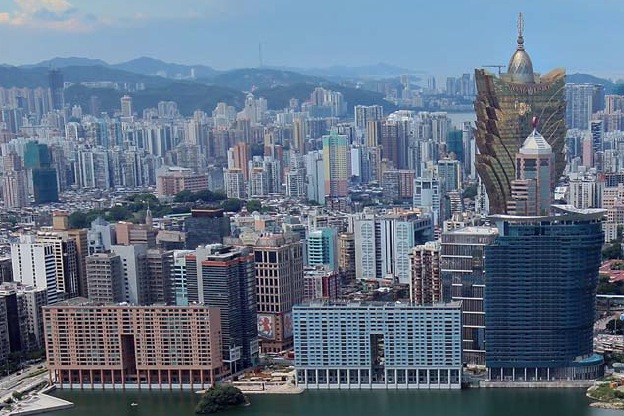
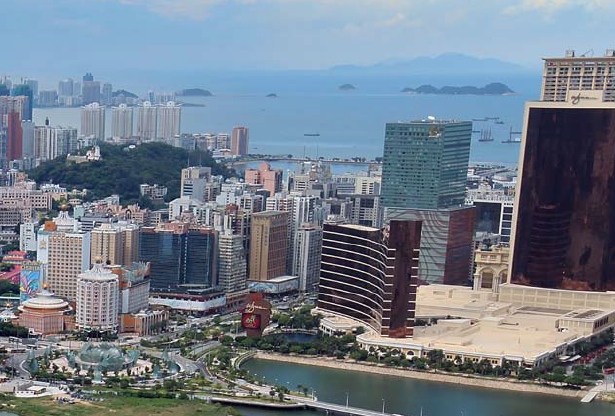
There’s a huge growing middle class in China, currently at around 150 million people, but expected to grow to 300 or 400 million in the next decade. Most of them live on the thriving eastern seaboard, within a few short miles of the new China Railway high-speed (CRH) network. The CRH is massive and growing fast – by some time later this year China is expected to have more high-speed rail track than the rest of the world combined.
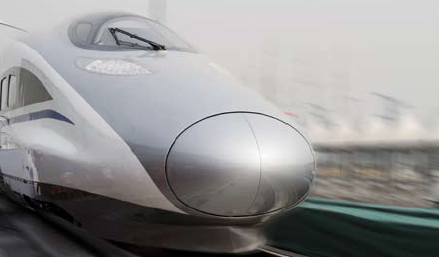 The trains are clean, comfortable, modern, inexpensive and frequent. The CRH has trains travelling up to 380km/h, and it connects the richest cities such as Beijing, Tianjin and Shanghai, directly down to Guangzhou, and then finally on to Zhuhai North. This last leg has cut Guangzhou to Zhuhai travel time from 2.5 hours on a bus to 30 minutes on a train. Total cost for a ticket: around 50 RMB.
The trains are clean, comfortable, modern, inexpensive and frequent. The CRH has trains travelling up to 380km/h, and it connects the richest cities such as Beijing, Tianjin and Shanghai, directly down to Guangzhou, and then finally on to Zhuhai North. This last leg has cut Guangzhou to Zhuhai travel time from 2.5 hours on a bus to 30 minutes on a train. Total cost for a ticket: around 50 RMB.
But wait, it gets better. A final link connecting Zhuhai North to a new station at Gongbei is slated to open on 31 July this year. That’s walking distance to the Chinese border with Macau! The line even continues on to Zhuhai’s Hengqin island, linking from the west to Macau’s (currently under construction) light rail project on Cotai.
In the not too distant future the trip from Shanghai to Macau could be a comfortable CRH train ride taking less than six hours. No plane required. Very affordable. That back-breaking two day bus or slow train ride will be nothing but a bad memory.
Macau will go through the same evolution Las Vegas did, but instead of taking 60 years to go from pure gambling town to all-round tourist destination, it will take 20. Non-gaming amenities at integrated resorts will play a serious role in Macau, but not for quite a while. The big bucks will come from the felt. The Chinese tourists’ tastes need time to mature. Eventually the average stay in Macau will increase from 1.5 days, albeit at a glacial pace. Our line is 2.2 days by 2020. It will never get to the 3.5 days that Vegas enjoys. Why? Simple – because Guangzhou is much closer to Macau than Los Angeles is to Las Vegas, and there is substantial population base even closer than Guangzhou.
Cotai will not kill the Macau peninsular like the Las Vegas Strip killed downtown Vegas. The day-tripper market, which will continue to be a large segment of Macau visitation, will see to that.
There are two potential threats to Macau: lack of infrastructure and labor shortages.
China is building infrastructure at a furious pace. The US$10 billion Hong Kong-Zhuhai-Macau bridge due for completion in 2015 or 2016 is yet another example. But will Macau keep her end of the bargain? We need to get this light rail project built and more hotel rooms open. Macau also needs to lift its border-crossing capacity, to avoid the familiar meltdowns during peak times.
Even more importantly we need to solve our labor shortage problem. This issue is holding Macau back from what it could be. The most common complaint WGM hears about Macau is “great hardware, poor software”. This problem won’t be solved unless the Macau government relaxes its policy on hiring foreign workers. This is not about foreign workers taking jobs from Macau locals – there simply aren’t enough people in Macau to satisfy the demand for labor right now, never mind the demand we’ll be seeing in eight years time.
Forget China hurting Macau by squeezing the visa program. China is too big and proud to strangle herself like that for any serious length of time. Macau is a wonderful success story and a beaming example of “1 country, 2 systems”. Along with that other great success story called Hong Kong, Macau is something China can point to every time the subject of Taiwan is raised. The mainland wants a successful Macau and a successful Hong Kong. They are mainland China’s storefronts, her windows to the world.
How many casinos will there be in Macau in 2020? How many will be modern-style big integrated resorts? Simple. Look at a map. There’s room for about 12 modern integrated resorts at Cotai. We’re talking the size of the current Galaxy Macau. If the demand is there (and we think it is), and the government allows the foreign workers needed to work these properties (and at some point you would think they must), there is no reason why we can’t have 12 more. Yes, the land hasn’t been granted, yes, the deals haven’t been struck. But they can be.
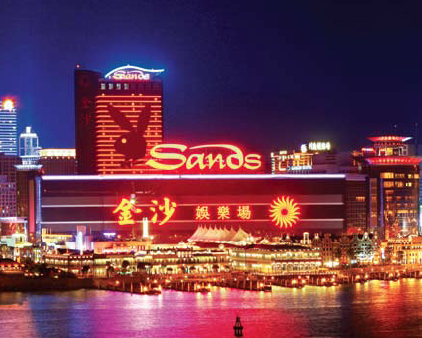
The original Sands Macau (opened 2004)
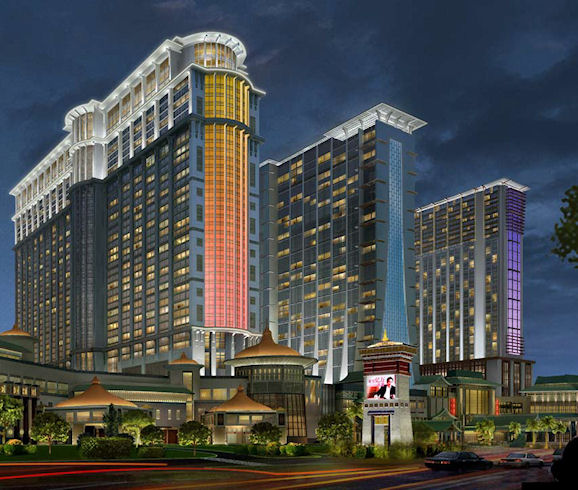
Sands Cotai Central (opening 2012)
And the big question – what about the concessions expiring in 2020 and 2022? Ah, don’t worry. Sometimes to predict the future you just need to look at the past. I’ll pick some years for you to look at: 1847, 1930, 1937, 1961 and 2001. Each time, something was worked out. And so it will be, again.
It’s going to be a wild ride over the next eight years, and WGM and wgm8.com will be here every step of the way to document it, to commentate on it and to give you a voice.
All you have to do is sign up for free at our freshly relaunched website wgm8.com and become part of our community of players. As a member you will:
- receive a free 12 month subscription to our paper magazine (sent to you anywhere in the world)
- be able to enter competitions to win prizes in Macau, Asia and elsewhere
- get your gaming questions answered online
- be eligible for promotions and special deals from our hotel and casino partners
- know where the biggest jackpots are
- be able to comment on articles
- start discussion threads on our website
- learn the tips the pros use to increase their chances of winning
- read honest and fair reviews of hotels, casinos, restaurants, and more, and
- keep informed about the games you love
Join in the conversation at wgm8.com and let’s all enjoy this exciting ride over the next few years together!
Oh, and here’s our prediction for Macau in 2020: the annual gross gaming revenue in Macau will be, wait for it, over MOP$2 trillion (that’s MOP$2,000,000,000,000). We know we’re going to get laughed at. But in eight years from now, maybe WGM will be laughing loudest.

